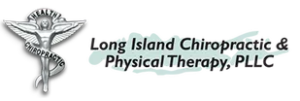- What is a pinched nerve, and how does it develop?
A pinched nerve occurs when excessive pressure is applied to a nerve by surrounding tissues, such as bones, cartilage, muscles, or tendons. This pressure can disrupt the nerve’s function, leading to pain, tingling, numbness, or weakness. Common causes include herniated discs, bone spurs, or repetitive stress.
- What are the symptoms of a pinched nerve?
Symptoms can vary but often include sharp, aching, or burning pain radiating from the affected area, numbness, tingling sensations (like pins and needles), muscle weakness, and a feeling that a limb or hand has “fallen asleep.” The severity and location of symptoms depend on the nerve affected.
- How is a pinched nerve diagnosed?
Diagnosis typically involves a thorough physical examination, medical history review, and diagnostic imaging, such as X-rays, MRI, or CT scans. These tests help pinpoint the exact location and cause of the nerve compression.
- What should I expect during my physical therapy sessions?
Your physical therapy plan may include exercises to strengthen muscles, improve flexibility, and relieve pressure on the nerve. Techniques such as manual therapy, postural education, and modalities like ultrasound or electrical stimulation may also be used to manage pain and inflammation.
- How long will it take to recover from a pinched nerve?
Recovery time varies based on the severity of the condition and individual factors. Many patients see improvement within a few weeks to a few months with consistent physical therapy and lifestyle adjustments. Your progress will be regularly assessed by our therapists.
- Are there specific exercises I should avoid with a pinched nerve?
Yes, it’s crucial to avoid activities that aggravate your symptoms. This often includes heavy lifting, high-impact exercises, or movements that strain the affected area. Your therapist will provide guidance on safe exercises and activities tailored to your condition.
- What can I do at home to support my physical therapy?
Home care is essential for recovery. This may include gentle stretching and strengthening exercises prescribed by your therapist, maintaining good posture, using ergonomic furniture, applying ice or heat as recommended, and taking breaks to avoid prolonged sitting or repetitive motions.
- Will I need surgery for my pinched nerve?
Surgery is usually not necessary for most pinched nerve cases and can often be effectively managed with conservative treatments like physical therapy. However, if symptoms persist or worsen, or if there is significant muscle weakness or nerve damage, surgical options may be considered.
- Can lifestyle changes help prevent future pinched nerves?
Yes, making certain lifestyle adjustments can help prevent future pinched nerves. Maintaining a healthy weight, staying active with regular exercise, practicing good posture, using proper body mechanics, and taking breaks during repetitive tasks are all beneficial.
- How can chiropractic care assist with a pinched nerve?
Chiropractic care can help by performing spinal adjustments to improve alignment and reduce nerve pressure. Chiropractors may also use soft tissue therapy, specific exercises, and ergonomic advice to enhance recovery and prevent future issues.
At Long Island Chiropractic & Physical Therapy, we are dedicated to providing comprehensive care to help you manage your pinched nerve effectively. Our team is here to support you every step of the way, ensuring you receive the best treatment tailored to your needs. If you have any further questions or concerns, please don’t hesitate to contact us. Your health and well-being are our priority.
